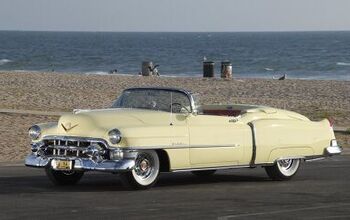With Plants at Stake, Unifor Prepares to Plunge Into Detroit Three Negotiations

Canadian auto manufacturing has steadily declined over the past several decades, and the future looks cloudy for workers at Detroit Three plants. It’s under this gathering gloom that the union representing these workers, Unifor, enters into contract negotiations with General Motors, Ford, and Fiat Chrysler.
The last round of collective bargaining was rough, but the near-closure of GM’s Oshawa Assembly (where auto production ceased last year) provided Unifor with a grim portent of what could await other underutilized Canuck plants.
Formal contract talks begin August 12th, Unifor said Friday.
“These are significant negotiations at a time when the auto sector needs new investment to rebuild our economy with more Made in Canada manufacturing,” said Unifor National President Jerry Dias in a release. “Our union is committed to negotiating a solid agreement that makes progress on wages and working conditions for our members.”
Journos won’t be in attendance for these physically-distanced talks as both sides attempt to avoid the spread of coronavirus.
With nearly 20,000 workers to back, Unifor needs commitment that plants like Ford’s Oakville Assembly and FCA’s Brampton Assembly will soldier on with new vehicles after the current product dries up. And there’s definite fear that they won’t.
Earlier this year, it was reported that Ford plans to ditch the Edge and Lincoln Nautilus, both built in Oakville, Ontario, to provide some room in the center of its crowded utility lineup. Brampton houses the ancient full-size LX-platform cars, two of which are due for a revamp in the near future. The Chrysler 300 is not expected to see a new generation.
Meanwhile, FCA’s Windsor minivan plant remains committed solely to a rapidly shrinking segment.
Unifor, who, in early 2019, boycotted the Mexican-built Chevrolet Blazer, has long been critical of Detroit’s preference for choosing low-cost manufacturing south of the Rio Grande over more expensive Canadian builds. While the new trade pact between the U.S., Mexico, and Canada includes a Mexican wage increase plank aimed at narrowing the cost gap, choosing south over north is still a thriftier option.
Exactly how the coronavirus pandemic will factor into the negotiations — and the thinking of Detroit execs — remains to be seen. Ford recently saw its flow of truck engines from Mexico stemmed on account of local anti-virus measures.
[Image: Fiat Chrysler Automobiles]

More by Steph Willems
Latest Car Reviews
Read moreLatest Product Reviews
Read moreRecent Comments
- Loser I had a spice red 06, only complaint was the stereo sucked. The low end torque was intoxicating. Had an ‘04 Mustang Mach that I really loved but the GTO was a huge upgrade. It was probably the best road trip car I’ve ever had. They were just about giving them away when I got mine. Never understood why they didn’t sell better. People say it was too bland but it was perfect to me.
- Lou_BC "What Brand Makes the Best Used Cars?" . .. None... They build new cars.
- Lou_BC None. . . They build new cars.
- SilverCoupe Well, I have had five cars over the last 46 years of car ownership, that have lasted me 6, 7, 10, 10, and 13 years (all but one purchased used), so my current car, a 16 year old '08 Audi A5 purchased in 2011, is the winner. I just drove it from Philly to the New York area and back to Philly today, and it remains rock solid.
- Calrson Fan Toyta trucks make lousy used vehicles only because the resale value is so stupid high you're better off just buying new. That's what I did in 1993, which was a LONG time ago but I suspect things haven't changed in 30 years as I know someone fairly recently that ended buying a new 4Runner after shopping used.


































Comments
Join the conversation
The 1965 AutoPact meant that a certain amount of auto's had to be made in Canada if a manufacturer wanted to sell in Canada. NAFTA removed such restrictions. Even with the new USMCS/CUSMA rules forcing higher wages for Mexican labour, there still remains a significant cost savings in Mexico. Canada needs to pull their heads out of the USA's ass and realize that "we" need to seek trade deals with similar sized economies like countries in the EU. The USA and China are going to butt heads on many fronts in the next 20 years and being aligned with "3rd parties" is a safe option.
I'm not buying Ford ditching Oakville, there's no other plant currently ready to accept two CD4 SUVs, and that's an actually money making market. Now, I wouldn't mind it, but the leak smells like early contract posturing. (What're they gonna do, resurrect Wayne Assembly?) Windsor and Essex, however?